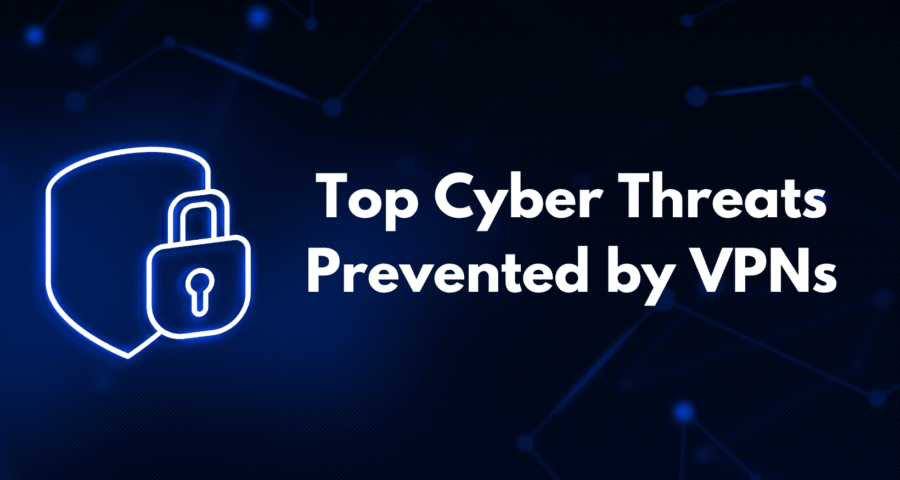With the ever-increasing importance of online security and privacy, Virtual Private Networks (VPNs) have become a popular tool for protecting oneself from cyber threats. By creating a secure and encrypted connection between your device and the internet, VPNs can help prevent cyber threats and attacks and keep your online activity private. In this blog post, we will explore some of the cyber threats that can be prevented by using a VPN.
Man-in-the-middle (MITM) attacks:
Man-in-the-middle (MITM) attacks are a type of cyber attack where a hacker intercepts communication between two parties to steal sensitive data, such as login credentials or personal information. Such attacks are common on unsecured Wi-Fi networks, such as those found in public places like coffee shops, airports, or hotels.
Using a VPN can help protect against MITM attacks by encrypting the communication channel between your device and the internet. This makes it difficult for hackers to intercept or eavesdrop on the communication, ensuring that your sensitive information remains private and secure.
Phishing attacks:
Phishing attacks are a type of cyber attack where a hacker uses fake websites or emails to trick users into giving away their login credentials or personal information. These attacks can be challenging to detect, as they often mimic legitimate websites or emails.
A VPN can help prevent phishing attacks by masking your IP address and location. By hiding your location, attackers cannot target you based on your geographic location, making it more challenging to launch a successful phishing attack against you.
Malware and virus infections:
Malware and viruses can infect your device through unsafe websites, emails, or downloads. A VPN can help prevent malware infections by blocking access to malicious websites and preventing unauthorised downloads.
By using a VPN, you can protect your device from malware infections, keeping your data safe and secure.
Geo-restrictions:
Some online content, such as streaming services or social media platforms, may be geo-restricted to certain countries or regions. This can be frustrating if you’re travelling or living abroad and want to access content that is not available in your location.
A VPN can help bypass geo-restrictions by allowing you to access content from different regions or countries. By changing your virtual location, you can access content that is not available in your country.
Public Wi-Fi security:
Public Wi-Fi networks, such as those found in airports, coffee shops, and hotels, are often unsecured and vulnerable to cyber attacks. Using a VPN can help secure your connection and protect your online privacy when using public Wi-Fi networks.
ISP tracking and surveillance:
Internet Service Providers (ISPs) can track and monitor your online activity, including the websites you visit and the content you access. This information can be sold to third-party advertisers, compromising your online privacy.
A VPN can help prevent ISP tracking and surveillance by encrypting your online traffic and hiding your IP address and location. By using a VPN, you can keep your online activity private, preventing ISPs from tracking your activity.
Government censorship and surveillance:
In some countries, governments may censor or monitor online content and communication. A VPN can help bypass government censorship and surveillance by hiding your IP address and location and encrypting your online communication.
By using a VPN, you can keep your online activity private and secure, even in countries with strict online censorship laws.
In conclusion, VPNs are an effective tool for protecting yourself from cyber threats and keeping your online activity private. By encrypting your online traffic and hiding your IP address and location, a VPN can help prevent cyber attacks, malware infections, and government surveillance. Whether you’re travelling abroad, working remotely, or just browsing the internet from your local.


Leave a Reply